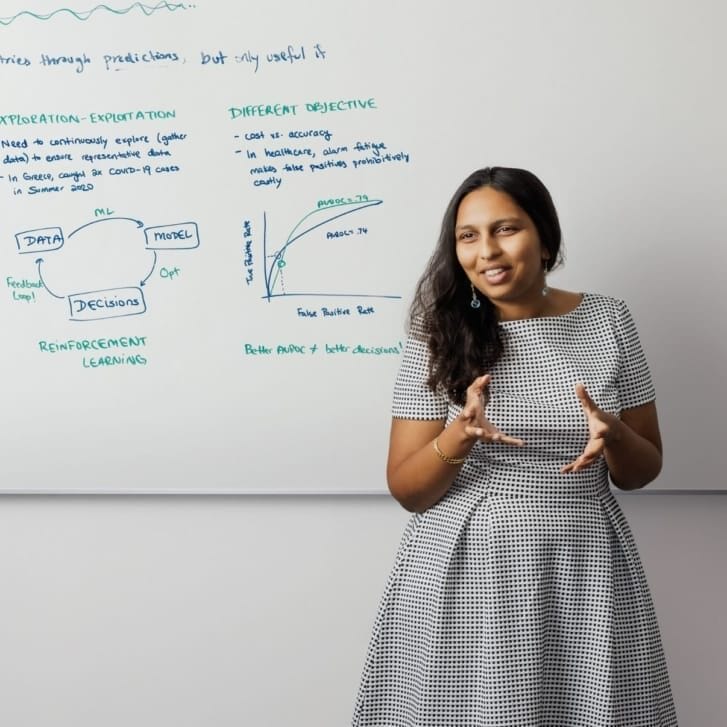Companies are pouring money into artificial intelligence. Some want to use it to develop new products. But is it worth the investment? Not necessarily, according to Lynn Wu, Wharton associate professor of operations, information, and decisions. In a whiteboard presentation based on her Wharton Executive Education lecture, Wu points out that while AI and analytics are driving innovation, the world isn’t seeing as much as we’d hoped AI would deliver. While investment in R&D has risen over the past century, the number of ideas per capita has dropped. “If you invest in AI, you might not see the innovation you expect,” says Wu.
AI is especially suited for some forms of innovation but not others, Wu explains. She outlines three types in particular: incremental innovation, which usually involves a series of small improvements to existing technology; new combination innovation, which means identifying novel ways to combine existing technologies into new ones; and radical innovation, or coming up with a whole new solution to a problem that then forms a separate class of technology. Wu says AI is best at finding fresh combinations of existing technology. Firms that do that generate an average of four new patents per year, for a 3.5 percent increase in revenue. Recently, AI helped MIT researchers discover a class of antibiotic drugs, called halicin, that can treat many classes of MRSA superbugs. It was a feat that for years had evaded startups and big pharma companies, many of which went bankrupt.
Wu says if you use AI for innovations that are incremental, based on business processes or new combinations of existing technologies, you can expect around a seven percent bump in productivity. Not bad, but AI might not deliver the outcome you’re hoping for if you’re looking at radical innovation. One day, tech may be mature enough for AI to help with such leaps forward, says Wu — “But as of today, we are pretty far off from that.”
Pulling back from technology, Wu offered an example of how an MBA admissions office might use AI to improve the admissions process. Officers used to look at applications to learn about candidates and winnow down the pool of applicants. Now, they can use technology to identify hidden biases around gender, race, or geography.
“AI is a tool to study your business processes,” says Wu, and like any other tool, its effectiveness comes down to how it’s used. “In the end, AI is all about people.” [For more on business applications of AI and Wharton’s research in this field, see “The Future of Business.”]
Published as “At the Whiteboard With Lynn Wu” in the Fall/Winter 2021 issue of Wharton Magazine.


























